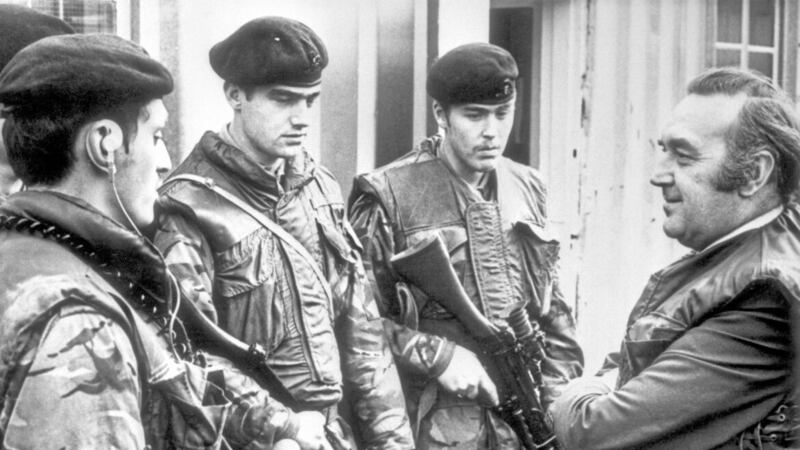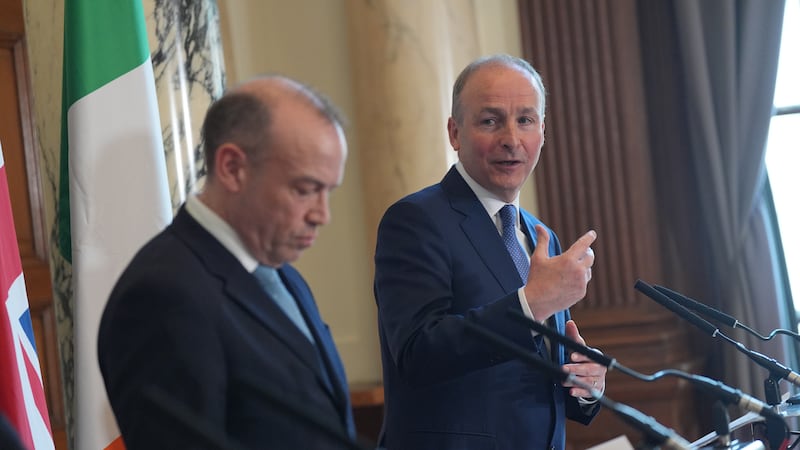BRITAIN'S Labour Party hasn’t always been popular on this island, particularly with nationalists.
I’m thinking of when the late Roy Mason held the title as Secretary of State for Northern Ireland from 1976 to ’79, during which time the security forces adopted a tougher approach and the Special Air Service (SAS) regiment was allowed to operate throughout the north.
In March 1979 the Labour government of the day was ousted when a motion of no confidence was passed by a single vote in the House of Commons. SDLP leader Gerry Fitt and Independent MP for Fermanagh and South Tyrone, Frank Maguire, both abstained because of dissatisfaction with Labour’s approach to the north. The West Belfast MP said in a speech: “When Labour is in opposition, one sees the real conscience of the Labour Party. Labour members are not then restricted by the reins of office.”
He slated the Labour government for increasing the number of Westminster seats in the north which was in effect a concession to the Ulster Unionists. The outcome of the Commons vote was a general election where Margaret Thatcher became prime minister in a Tory government and one would like to think, perhaps naively, that a Labour administration would at the end of the day have taken a more conciliatory approach to the subsequent republican hunger-strikes.
Labour’s reputation among nationalists and the more perceptive and far-seeing unionists was restored considerably with the performance of Tony Blair and Mo Mowlam in helping to negotiate the Belfast/Good Friday Agreement. Just short of eight weeks from now, on April 10, the 25th anniversary of the pact will be widely celebrated and may even be marked by a visit from President Joe Biden, who regularly expresses pride in his Irish connections.
Many in the British and Irish political establishments would doubtless be very happy to see the US head of state coming to Belfast to celebrate one of the more successful peace processes of modern times. However, quite a few observers doubt that the visit will take place if the current imbroglio over the Irish Sea protocol isn’t resolved or at the very least on the verge of being finally sorted.
In his speech at Queen’s University last week, Sir Keir Starmer described the Belfast Agreement as 'the greatest achievement of the Labour Party in my lifetime, without question'. But the Labour leader was careful to point out that 'the political effort didn’t come just from us' and even included former Tory PM, John Major on the list of those those who also deserved credit.
The most important part of his speech was where he encouraged Prime Minister Rishi Sunak with the words 'if there is a deal to do in coming weeks – do it'. And he added: “Whatever political cover you need, whatever mechanisms in Westminster you require, if it delivers for our national interest and the people of Northern Ireland – we will support you.” In other words, whereas members of what Starmer termed the 'Brexit purity cult' might well vote against a protocol agreement at Westminster, his party would ensure that a deal acceptable to Labour secured a majority.
As the example of Gerry Fitt and Frank Maguire showed, Labour can't always be trusted by nationalists in its approach to the north but there would seem to be grounds for some cautious optimism if the Conservatives are ousted in the next UK general election. Even long time Tory supporters must be feeling a bit worn out after the rollercoaster days of Boris Johnson rule followed by the financial instability that marked Liz Truss's brief time in office.
Sunak certainly comes across as more measured and cautious in his approach but the opinion polls suggest he may have arrived in the top job too late. Since the start of this month until time of writing, Labour has scored between 45 and 49 per cent with the Conservatives ranging ranging from 21 to 31 points.
The recent episode where Sinn Féin leader Mary Lou McDonald was excluded from multi-party talks in Belfast about the protocol with UK foreign secretary James Cleverly was rather unfortunate to begin with, but issuing different excuses afterwards made it worse. Politicians who are in the same camp need to agree on their public message if at all possible.
The intriguing question arises as to what might happen if Mary Lou becomes taoiseach after the next general election in the Republic and still seeks to participate as party leader in meetings similar to the occasion involving Mr Cleverly. It is important to Sinn Féin to present itself as an all-island party and agreeing to the exclusion of their overall leader might seem to republicans like a concession to partition. For those of us observing from the sidelines, it could all be quite interesting and even entertaining.
Email: Ddebre1@aol.com; Twitter: @DdeBreadun








